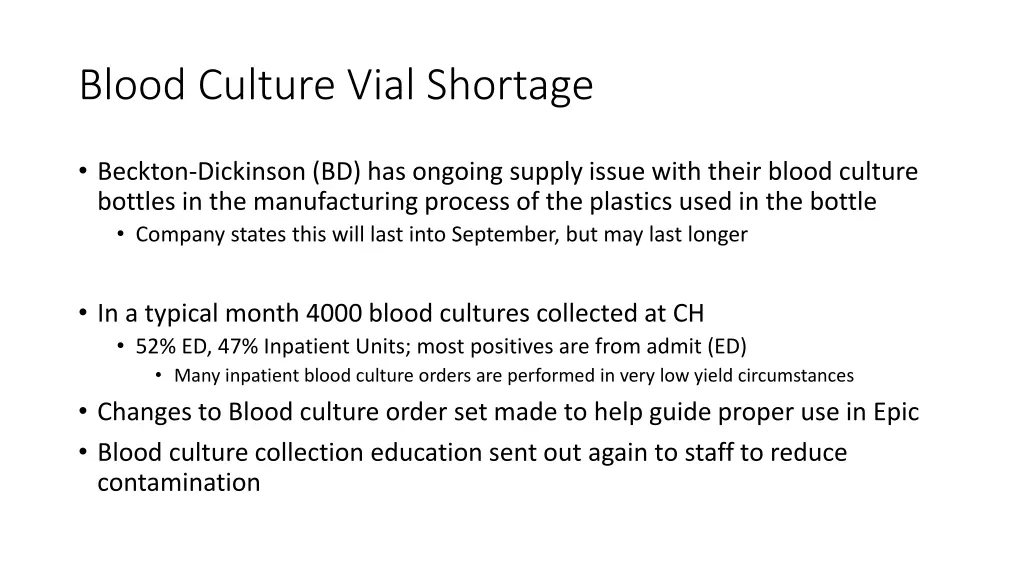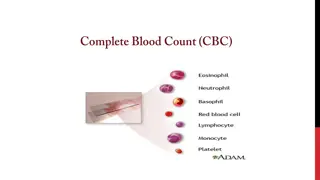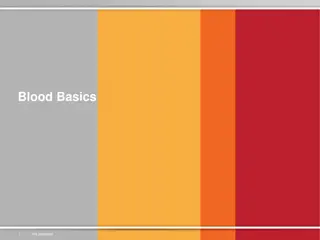
Blood Culture Vial Shortage and Best Practices for Collection
Learn about the ongoing blood culture vial shortage by Beckton-Dickinson and the changes implemented due to the supply issue. Find out why routine blood cultures may not be sufficient for detecting certain pathogens and the importance of proper blood culture collection practices during this shortage.
Download Presentation

Please find below an Image/Link to download the presentation.
The content on the website is provided AS IS for your information and personal use only. It may not be sold, licensed, or shared on other websites without obtaining consent from the author. If you encounter any issues during the download, it is possible that the publisher has removed the file from their server.
You are allowed to download the files provided on this website for personal or commercial use, subject to the condition that they are used lawfully. All files are the property of their respective owners.
The content on the website is provided AS IS for your information and personal use only. It may not be sold, licensed, or shared on other websites without obtaining consent from the author.
E N D
Presentation Transcript
Blood Culture Vial Shortage Beckton-Dickinson (BD) has ongoing supply issue with their blood culture bottles in the manufacturing process of the plastics used in the bottle Company states this will last into September, but may last longer In a typical month 4000 blood cultures collected at CH 52% ED, 47% Inpatient Units; most positives are from admit (ED) Many inpatient blood culture orders are performed in very low yield circumstances Changes to Blood culture order set made to help guide proper use in Epic Blood culture collection education sent out again to staff to reduce contamination
Best practice is to collect "2 sets" of blood cultures. Due to the major shortage we advise that only one set of blood cultures is ordered at a time. As a reminder, 1 set = 2 blood culture vials, so for many providers at CH this will not be an apparent change. [In the Longterm, when supplies are back, we continue advocating a 2 set approach, but that will have to wait given the circumstances.]
A note on Fungal Blood Cultures Routine blood cultures are equivalent to fungal blood cultures for detecting common yeasts, such as Candida spp and Cryptococcus spp Pathogens such as Aspergillus spp and Mucorales spp are very rarely found on fungal blood cultures and are better detected using biopsy with tissue culture or serologic studies (Aspergillus galactomannan) If concerns for Histo/Cocci/Blasto ,non-culture based studies specimens often more reliable and faster






















